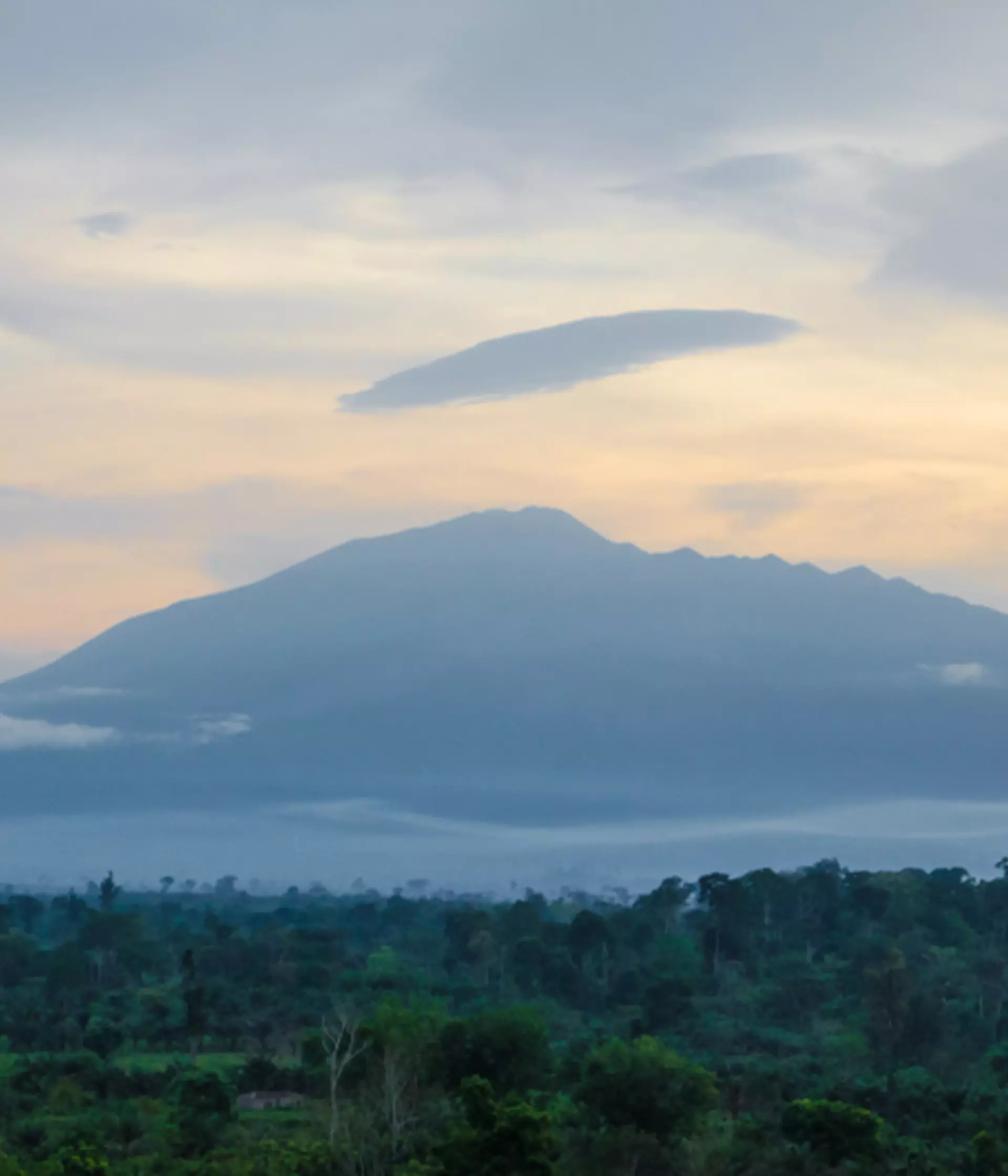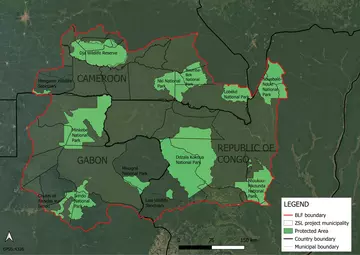
The Biodiverse Landscapes Fund (BLF) is a £100 million UK International Development programme working in six critical landscapes worldwide, with ZSL leading in the Western Congo Basin (WCB) landscape, one of the world’s most vital biodiversity hotspots.
Why the Western Congo Basin?
This landscape is home to unique ecosystems, rich biodiversity, and communities that depend on natural resources for their livelihoods.

About the Landscape
- A vast region spanning sections of Cameroon, Gabon, and the Republic of Congo. At its heart lies the TRIDOM Landscape (Tri-National Dja-Odzala-Minkébé), which covers 178,000 km², or 10% of the entire Congo Basin rainforest.
- The world’s largest rainforest outside of the Amazon.
- Home to critically endangered forest elephants, Western lowland gorillas and Western chimpanzees.
- Sustains millions of people who depend on its resources for food, shelter, and income, making its conservation vital not only for wildlife but also for human wellbeing.
Issues in the Landscape
- Massive and escalated pressures due to forest clearance, mining, and illegal killing of wildlife (including for the illegal wildlife trade).
- Weak enforcement of timber regulations.
- Expansion of agriculture plantations.
- Ambient poverty and limited livelihood options.
- Lack of coordinated efforts between key stakeholders, including national and local governments, conservation organisations, Indigenous and local communities and private sector entities.
To protect this critical landscape, ZSL and partners are implementing a 7-year project funded by the BLF.
The BLF programme aims to reduce poverty, protect and restore biodiversity, and mitigate the impact of climate change by fostering inclusive, rights-based, and sustainable development practices. Through seven key components and three cross-cutting themes, we work with communities, governments, and partners to drive impactful change across Cameroon, Gabon, and the Republic of Congo.
Project Overview
In collaboration with our partners, ZSL leads an integrated approach to conservation and sustainable development in the WCB. Each component addresses specific challenges and opportunities, such as governance, health, sustainable livelihoods, human wildlife coexistence and wildlife protection. Together, they contribute to three overarching outcomes:
- People: Economic opportunities that incentivise biodiversity-positive outcomes while supporting local development, climate resilience, and poverty reduction.
- Nature: Efforts to slow, halt, and reverse biodiversity loss.
- Climate: Reduction in greenhouse gas emissions.
Through this multi-faceted strategy, BLF is building a future where people and nature thrive together.
Key Components
Each component of the BLF project addresses specific challenges and opportunities within the WCB, structured to achieve impactful conservation and community benefits:
Effective governance is essential to sustainably manage the WCB’s natural resources.
This component works to enhance land-use planning, promote coordination among stakeholders, and develop policy frameworks for sustainable forest management and conservation.
By strengthening institutional capacities and fostering collaboration between local and national governments, private sectors, and communities, we aim to create a more inclusive governance model that ensures responsible land use, reduces conflicts, and mitigates deforestation.
The WCB faces threats from deforestation, forest crime, and limited community rights.
This component tackles these challenges by promoting transparency in forest and land-use management, enforcing regulatory frameworks, and advocating for equitable resource management.
Through partnerships with Indigenous Peoples and local communities (IPLCs), we foster inclusive practices that respect community rights and integrate their knowledge in decision-making processes, which benefits both people and forests.
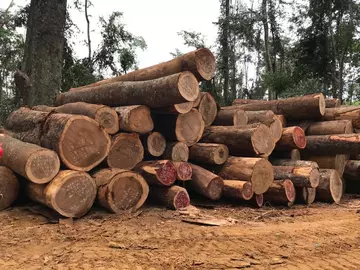
Access to healthcare remains a challenge for communities in the WCB, especially for women and children.
Led by Plan International, this component promotes community health through Social and Behaviour Change Communication (SBCC) and improved services, focusing on maternal, newborn and child health and nutrition. In collaboration with ZSL’s Institute of Zoology, we also advance the “One Health” approach, which addresses interconnections between human, animal, and environmental health.
By studying disease patterns in wildlife and human populations, we aim to build a disease-resilient landscape that benefits both people and biodiversity.
Protected areas are crucial for safeguarding biodiversity, but communities living on their boundaries frequently experience significant human-wildlife conflict, which can erode support for conservation.
This component will address this conflict, particularly from elephants, and enhance monitoring of these areas to understand species dynamics to provide the most sustainable solutions.
By working with local communities and providing technical support, we will empower them to coexist with wildlife while preserving cultural and economic needs. Efforts include conflict mitigation strategies, training for community members, establishing participatory monitoring systems and development of sustainable income opportunities linked to conservation.
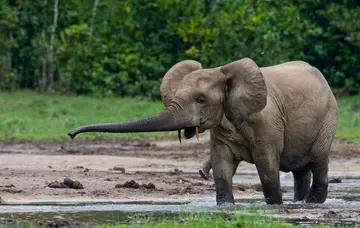
Conservation efforts require long-term funding.
This component supports the development of sustainable financing through forest-positive commodities, natural carbon projects, and philanthropic tourism.
By implementing ‘pioneer projects,’ we aim to demonstrate the viability of sustainable business models, which can attract investment and secure resources for conservation. These revenue streams not only benefit biodiversity but also generate income for communities, fostering a conservation-driven economy in the region.
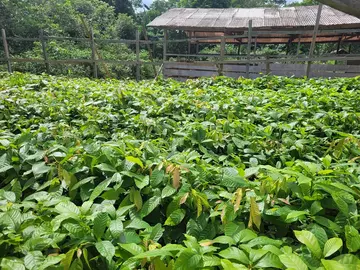
Improving local livelihoods is central to the BLF strategy.
This component, led by Plan International, promotes sustainable practices such as climate-smart techniques for agricultural and non-timber forest products (NTFPs), financial inclusion, and efficient resource use to reduce pressures on forests.
By creating alternative and sustainable income sources for women, youth, Indigenous Peoples and vulnerable households, we help communities build resilience to climate impacts and improve their economic inclusion, all while conserving biodiversity.
The illegal wildlife trade is a severe threat to biodiversity, especially for endangered species in the WCB.
This component strengthens anti-poaching measures, enhances law enforcement, and protects community and Rangers rights. Through engaging with IPLCs and working closely with local authorities, we ensure that enforcement becomes part of the community and both respect each other's fundamental rights, while addressing criminal networks involved in wildlife trafficking.
Through this multi-stakeholder approach, we build an effective framework to protect wildlife and promote a legal and sustainable trade in forest resources.
Cross-Cutting Themes
The BLF’s components are unified by three cross-cutting themes:
- Protecting IPLC Rights: Recognising and safeguarding IPLC rights to land, resources, and self-determination.
- Facilitating Gender Equality: Addressing gender disparities by promoting women’s leadership and economic opportunities.
- One Health: Integrating human, animal, and ecosystem health to prevent disease outbreaks and promote a balanced landscape.
Who is involved?
The BLF in the West Congo Basin is supported by a global consortium of conservation and development organisations. Core partners include Plan International and Palladium, with additional contributions from local NGOs, community organisations, and international funders. This collaboration enables the programme to leverage diverse expertise, deliver on-the-ground results, and adaptively manage resources to maximise conservation and development outcomes.
• ZSL is the Lead Delivery Partner, taking overall responsibility for the delivery of the BLF in the West Congo Basin, resourcing the Programme Management Team; leading Components 1, 2, 4, 5 and 7 and providing safeguarding and monitoring and evaluation; One Health and climate expertise.
• Plan International is a leading global charity with extensive expertise working with communities to support equality and access to services. Plan leads the livelihoods and health components (6 and 3 respectively), as well as provide gender expertise.
• Palladium is a leading implementer of international development programs, working in over 90 countries and across a broad range of sectors. With particular expertise in programme management, they will assist in the development of the management skills of downstream partners and link nature-based solutions projects to investors under the sustainable revenue component.
On the ground, this work will be delivered through downstream partners in the different countries including:
• AGRIFOCA – The Sustainable Cocoa Cultivation Company – they have international coverage.
• ATIBT - Association Technique des Bois Tropicaux (International Tropical Timber Technical Association) - based in France but will still implement activities in Cameroon and RoC
• BrainForest - based in Gabon and works on the Forest-Environment issues with a dual perspective of support in the field and policy monitoring.
• Conservation Justice - based in Gabon fighting against wildlife crime.
• CJJ - Comptoir Juridique Junior - based in RoC and providing legal assistance for crimes including environmental crimes.
• FGDH - Forum pour la Gouvernance et les Droits de l’Homme - based in RoC and works for social equity, environmental issues, and human rights.
• FODER - Foret et Developpement Rural (Forests and Rural Development) - based in Cameroon
• NOE – safeguards biodiversity in France and internationally - based in Cameroon
• SAILD - Service d’Appui aux Initiatives Locales de Developpemet (Support Service for Local Development Initiatives ) - based in Cameroon
• TRAFFIC – The Wildlife Trade Specialists – based in Cameroon but cover the 11 COMIFAC countries
• TFRD - Tropical Forest and Rural Development – based in Cameroon
Join us in transforming the West Congo Basin into a model of sustainable conservation and community development. Your support can help us expand our reach and deepen our impact in one of the world’s most vital landscapes.
Funding
The Western Congo Basin Landscape Programme is made possible by the Gift of the UK People through UK International Development.

